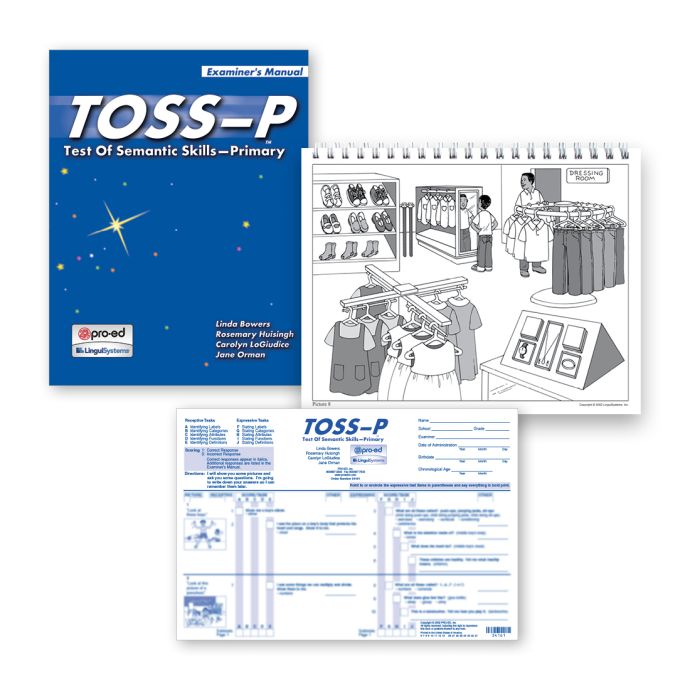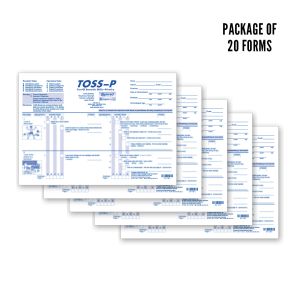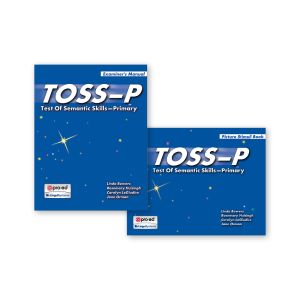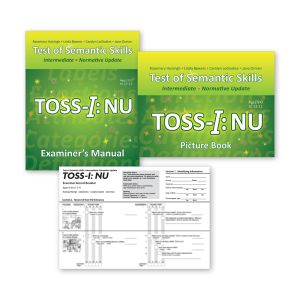TOSS-P: Test Of Semantic Skills–Primary, Complete Kit
| Author | Rosemary Huisingh • Linda Bowers • Carolyn LoGiudice • Jane Orman |
|---|---|
| Test Level | A |
| Age Range | Preschool, School-Age |
| Testing Time | 25–30 minutes |
| Administration | Individual |
Ages: 4-0 through 8-11
Testing Time: 25–30 minutes
Administration: Individual
The TOSS-P is a receptive and expressive diagnostic test designed to assess a student's semantic skills and it yields specific information about a student's semantic and vocabulary abilities.
Children with language and learning disorders often are severely hampered when facing words out of context or new words in reading passages, or when trying to determine word meaning by using context clues. The TOSS-P meets the need for a comprehensive diagnostic test of semantics. A wide range of receptive and expressive tasks, including skills in categorizing, describing, and defining (not just naming skills), means the TOSS-P will accurately assess your students' competency with semantics.The test is built around six common themes and comprised of twenty realistic line-illustrations depicting natural, real-life scenes. Test items emphasize vocabulary that is meaningful and relevant to the experiences of young children. In this way, your student can use visual and verbal information to respond to the test as they do to respond to their environment.There are five subtests and 10 semantic and vocabulary tasks in the test. Five tasks are receptive and five are expressive. This parallel allows for analysis and comparison of verbal and nonverbal performance. The multiple question types give students ample opportunities to demonstrate the flexibility, diversity, and richness of their language.
Subtests:
The scene pictures are based on the themes of Learning and Playing, Shopping, Around the House, Working at School, Eating, and Health and Fitness.
- Subtest A: Identifying Labels – points to an item named
- Subtest B: Identifying Categories – points to a member of a category that is named
- Subtest C: Identifying Attributes – given an attribute, point to the appropriate item
- Subtest D: Identifying Functions – point to an item whose functions have been described
- Subtest E: Identifying Definitions – point to an item that has been defined
- Subtest F: Stating Labels – name an item in a picture
- Subtest G: Stating Categories – given three members of a category, name the category
- Subtest H: Stating Attributes – describe and item by stating one of its attributes
- Subtest I: Stating Functions – describe what an item does or what we do with the item
- Subtest J: Stating Definitions – define an item
COMPLETE KIT INCLUDES: Examiner's Manual, Picture Stimuli Book, and 20 Test Forms. (©2002)





Validate your login